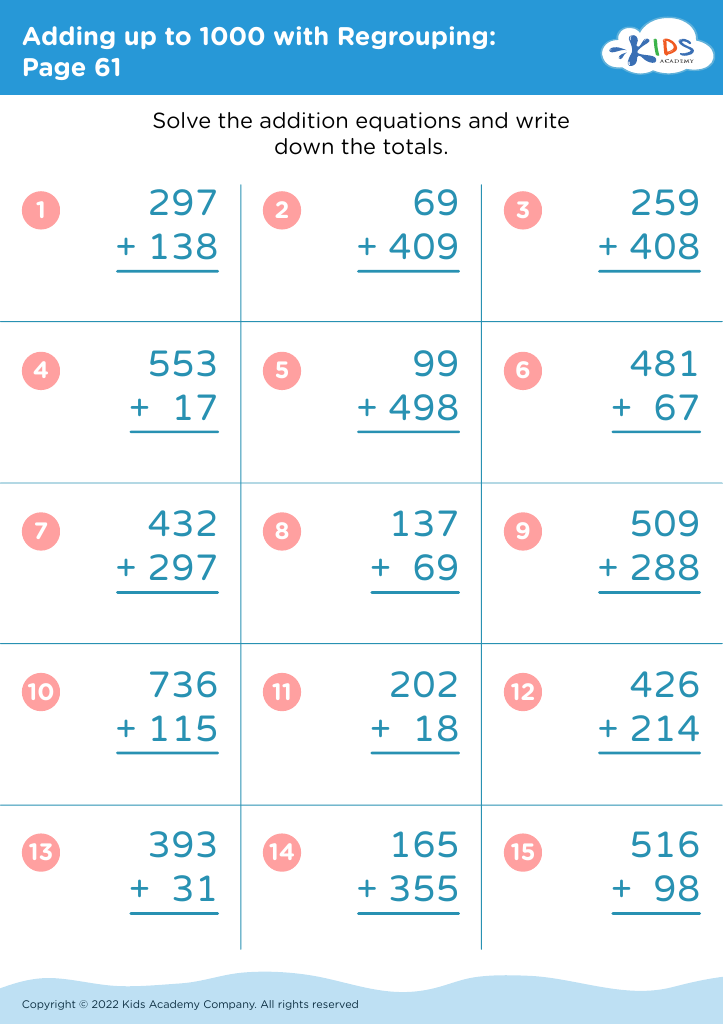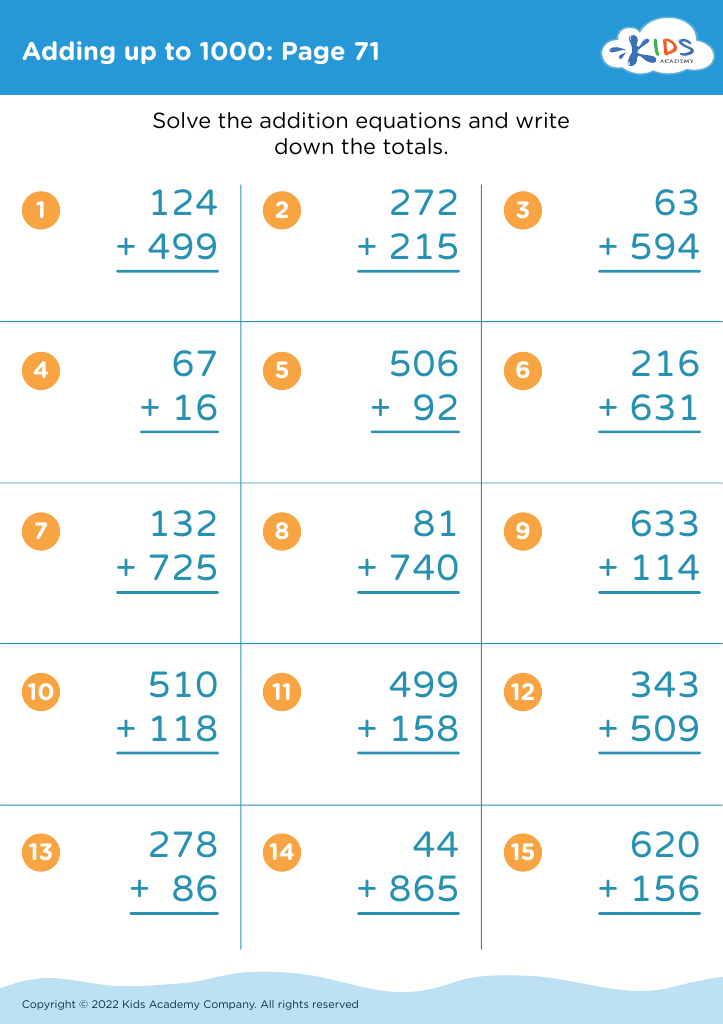Problem-solving abilities Addition & Subtraction Worksheets for 9-Year-Olds
9 filtered results
-
From - To
Enhance your 9-year-old's problem-solving abilities with our engaging Addition & Subtraction Worksheets! Tailored specifically for young learners, these worksheets encourage critical thinking and apply math skills to real-life scenarios. Through a variety of exercises, your child will learn to tackle mathematical problems creatively and efficiently, boosting their confidence in math. Our resources are designed with fun illustrations and relatable contexts to keep kids motivated. Perfect for classroom use or at-home practice, these worksheets not only solidify math fundamentals but also promote analytical thinking. Help your child excel in math while developing essential problem-solving skills today!
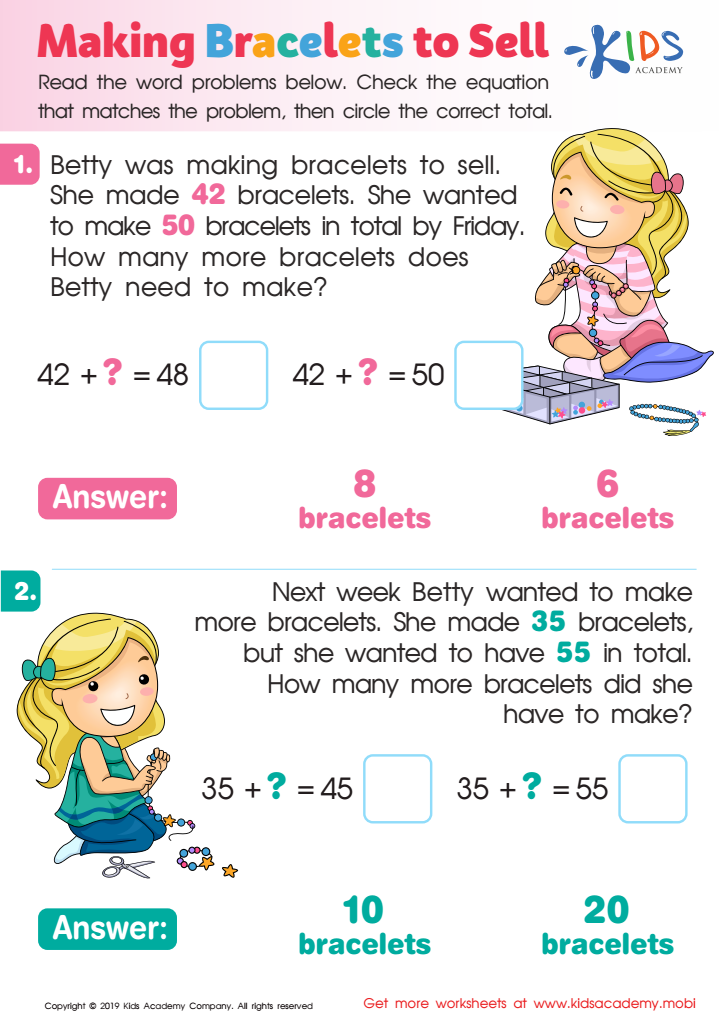

Making Bracelets to Sell Worksheet
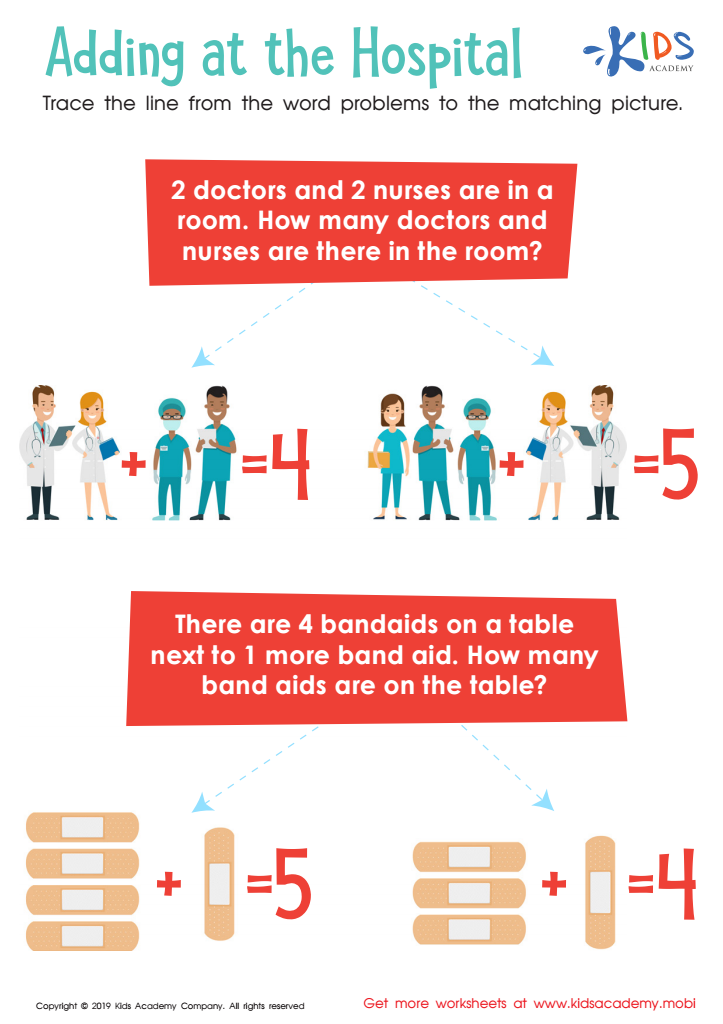

Adding at the Hospital Worksheet
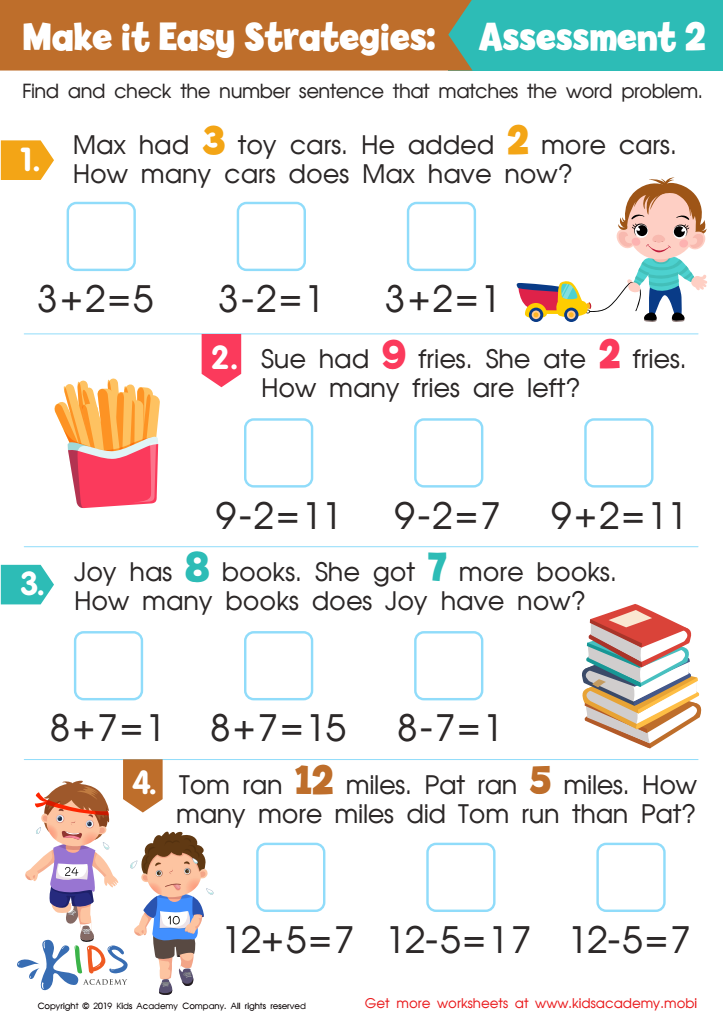

Make it Easy Strategies: Assessment 2 Worksheet
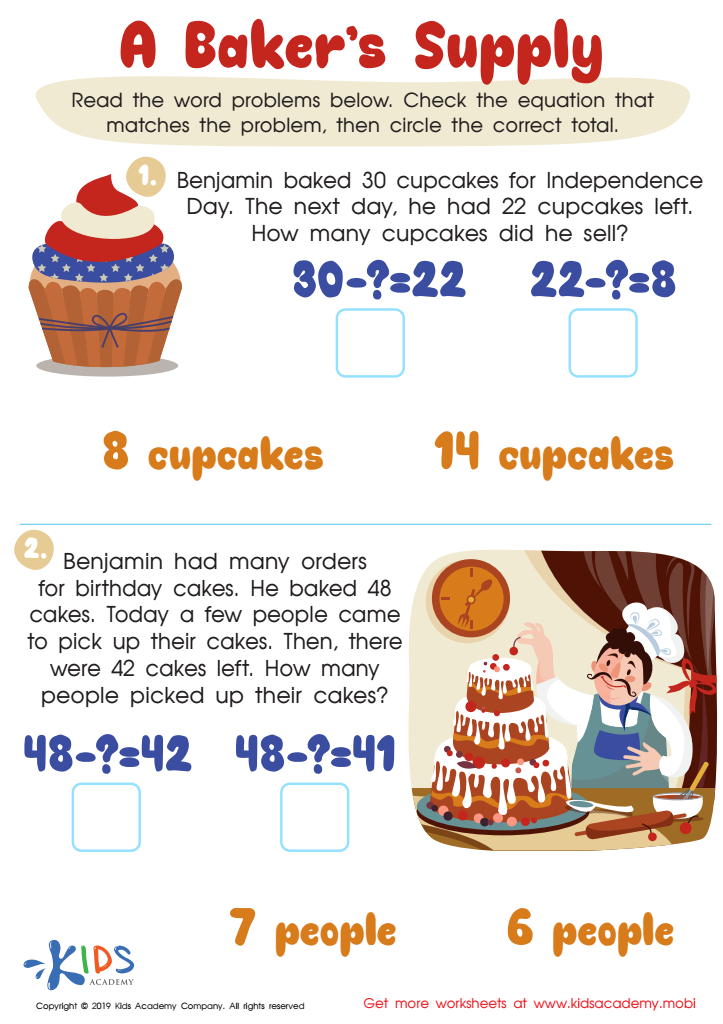

A Baker's Supply Worksheet
Parents and teachers should prioritize problem-solving abilities in addition and subtraction for 9-year-olds because these foundational skills are crucial for overall mathematical competence. At this age, children transition from basic arithmetic to more complex problem-solving, which strengthens critical thinking and analytical skills. Mastering addition and subtraction lays the groundwork for understanding larger concepts such as multiplication, division, and more advanced math concepts later in their education.
Moreover, fostering strong problem-solving abilities helps children develop persistence and resilience when faced with challenges. They learn to approach problems step-by-step, explore different strategies, and reflect on their solutions. These skills are not only vital in academics but also apply to everyday situations, enabling children to tackle real-world problems effectively.
Conversely, weak problem-solving skills can lead to frustration and a lack of confidence in math, potentially causing long-term issues as they progress through school. By encouraging and supporting children in developing these abilities, parents and teachers can cultivate a positive attitude toward math, enhance their overall learning experience, and equip them with tools essential for successful futures. In essence, strong addition and subtraction problem-solving skills are foundational for academic success and personal development.
 Assign to My Students
Assign to My Students


